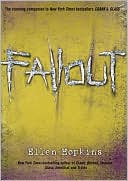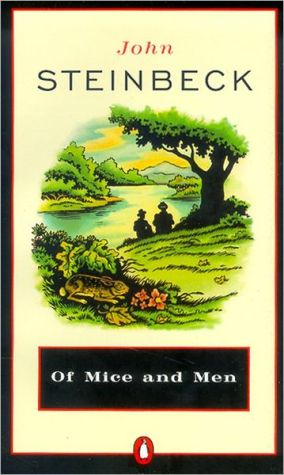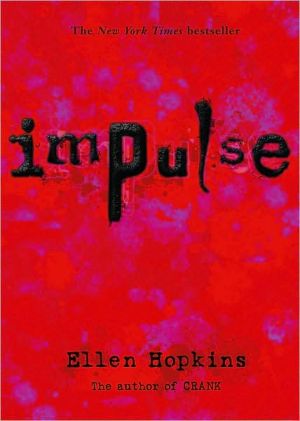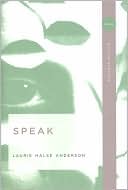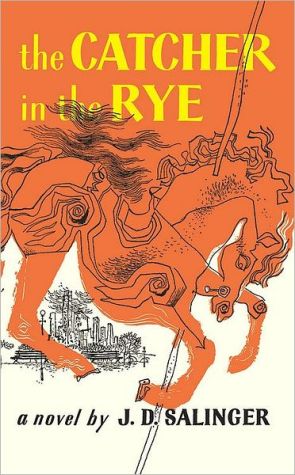Seventeen: A Novel in Prose Poems
The first day of Stephanie's junior year is a step into the underworld. Led into desire, depression, and alienation by the intoxicating yet strangely distant figure of Denny Pistill, Stephanie must cope with a series of fears and crises. Denny and Stephanie are drawn to each other through writing and reading poetry, and author Liz Rosenberg's own poetic sense gives truth to Stephanie's ability to make art out of the darkest things. Stephanie's passage through an emotional winter, which echoes...
Search in google:
The first day of Stephanie’s junior year is a step into the underworld. Led into desire, depression, and alienation by the intoxicating yet strangely distant figure of Denny Pistill, Stephanie must cope with a series of fears and crises. Denny and Stephanie are drawn to each other through writing and reading poetry, and author Liz Rosenberg’s own poetic sense gives truth to Stephanie’s ability to make art out of the darkest things. Stephanie’s passage through an emotional winter, which echoes the myth of Persephone, ultimately brings her into a budding sense of life and hope. Written in short chapters in the style of prose poetry, this is an exquisitely crafted, emotionally honest novel for young adults from a prize-winning author.Publishers WeeklyThis series of prose poems voicing the many woes of 17-year-old Stephanie teeters between art and melodrama. Third-person narrative calls on specific details and imagery ("All day she tastes his lips and breathes in the dark, musty old smell of his wool jacket") to evocatively convey the angst of the heroine, but the author squeezes too many complex issues into this slim volume to delve into any of them deeply. The development of Stephanie's character is overshadowed by the conflicts arising from unstable relationships with her mentally disturbed mother and Denny, her fellow-poet boyfriend. Stephanie plummets into depression as she battles irrational fears that she is pregnant (before they have sex), experiences a strangely intimate moment with her boyfriend's alcoholic father and discovers Denny is gay. Her only positive distraction comes with high-school wrestler Ben, who amuses himself by writing rude comments in students' poetry journals. Teens will no doubt find Stephanie's struggles darkly intriguing, but her self-despair eventually becomes tedious. At one point, she makes an elaborate list of the things that make her cry ("The smell of onions frying. Denny's worried face; his long scrawled letters. Long-distance telephone commercials"), but readers may be left to ponder what, if anything, makes her laugh. Ages 14-up. (Oct.) Copyright 2002 Cahners Business Information.
\ Publishers WeeklyThis series of prose poems voicing the many woes of 17-year-old Stephanie teeters between art and melodrama. Third-person narrative calls on specific details and imagery ("All day she tastes his lips and breathes in the dark, musty old smell of his wool jacket") to evocatively convey the angst of the heroine, but the author squeezes too many complex issues into this slim volume to delve into any of them deeply. The development of Stephanie's character is overshadowed by the conflicts arising from unstable relationships with her mentally disturbed mother and Denny, her fellow-poet boyfriend. Stephanie plummets into depression as she battles irrational fears that she is pregnant (before they have sex), experiences a strangely intimate moment with her boyfriend's alcoholic father and discovers Denny is gay. Her only positive distraction comes with high-school wrestler Ben, who amuses himself by writing rude comments in students' poetry journals. Teens will no doubt find Stephanie's struggles darkly intriguing, but her self-despair eventually becomes tedious. At one point, she makes an elaborate list of the things that make her cry ("The smell of onions frying. Denny's worried face; his long scrawled letters. Long-distance telephone commercials"), but readers may be left to ponder what, if anything, makes her laugh. Ages 14-up. (Oct.) Copyright 2002 Cahners Business Information.\ \ \ \ \ VOYAStephanie at seventeen is naïvely, passionately in love for the first time. The object of her passion is arrogant and sophisticated Denny, a product of two years at Eton. Their relationship is a clash of dysfunctional personalities. Stephanie's mother is bipolar, with good days when she sings, dances, sculpts, and concocts strange and hilarious casseroles. On her bad days, increasing in frequency, she hibernates in a darkened bedroom. She is careless with her medications, too, giving Stephanie a chance to score a few pills when responsibility for her young brother Justin and her father becomes too burdensome. Denny lives with and enables an alcoholic father. The love affair between these two damaged young people seems destined but doomed. The reader learns of Stephanie's journey from infatuation to passion, disillusion, breakdown, and recovery through brief melodic prose poems, rich with imagery, wit, and stark beauty. Teens more experienced and perceptive than Stephanie will see Denny's true character. As with his father, Denny is a user. Sadly, characters must follow their destinies as imagined by their creators-Stephanie cannot heed the warnings of well-intentioned friends nor those of involved readers. Some explicit but tastefully written descriptions of sexual activity make this lovely and poignant little book a title for older teens. VOYA Codes: 5Q 3P S (Hard to imagine it being any better written; Will appeal with pushing; Senior High, defined as grades 10 to 12). 2002, Cricket, 152p, Hansen\ \ \ School Library JournalGr 9 Up-At 17, but looking 14 with her slight, underdeveloped figure, Stephanie is "the girl" with long red hair who writes poetry and takes advanced classes at her Massachusetts high school. On the first day of her junior year, she attracts the eye of Denny Pistil, son of a rich attorney, who soon sweeps her off her feet with his interest in her poetry and his passionate attentions. He makes her wonder if she is "betraying- the world of her mother, the untouched, unscathed world of her self." Her mother works at home as a potter; her struggle with mental illness is an integral part of the family's life. Stephanie fears she may have inherited her mother's craziness in the guise of her own anxieties and her phobias about food. As the romance with Denny progresses, she fears pregnancy and feels a growing ambivalence about lovemaking. Denny begins to grow cold and distant, and Stephanie experiences symptoms of depression and anxiety when their relationship unravels over his nascent sexual attraction to a male friend. She recovers her hopefulness in the early spring as she begins a new friendship with Ben, who loves poetry and has the gift of putting her at ease. Rosenberg's sensitive writing is structured in complete sentences and paragraphs, like prose, with the figurative language and economy of word characteristic of poetry. Breaks are provided not by chapters, but by poem titles, to render a touching third-person narrative, enhanced by resonant images of nature and the changing seasons.-Susan W. Hunter, Riverside Middle School, Springfield, VT Copyright 2002 Cahners Business Information.\ \ \ \ \ Kirkus ReviewsThe story of a teen's sexual coming of age, twinned with her struggles with anorexia and depression, is distinguished from so many of its ilk by an exceptionally fine and precise prose style. Steph is 17, prey to all the usual doubts and insecurities of that age, but her situational angst is compounded by the difficulties attendant upon having a manic-depressive mother. On the days when her artist mother is up, it's "like coming into a room with party lights on where you had extended a hand forward, frightened, expecting to fall into pitch darkness," but in Steph's household, the yawning blackness seems to be much closer to the norm. Absent any real emotional security at home (her father is loving but ineffectual), when Steph begins a romance with the almost frighteningly intellectual Denny, she finds herself becoming more and more unhinged and alone. There is no hint of the cautionary in the deliberate examination of Steph's first sexual experiences-with the possible exception of an almost hilarious scene where she blurts out her fears of an impossible pregnancy to her grandfatherly history teacher-just a celebration of erotic awakening. This celebration, however, is followed almost immediately by a corresponding awareness of a growing emotional void as her relationship with Denny becomes increasingly joyless. The present-tense narration puts the reader almost claustrophobically into Steph's increasingly uncomfortable head; its tendency to refer to her much more as "the girl" than by name emphasizes her growing sense of alienation. Steph's tentative steps back to health are charted as deliberately as her decline. If some subplots-notably a most peculiar one involving Denny's unfaithful,alcoholic father-do not add to the narrative as a whole, neither do they materially detract. As noted, the story itself is not particularly new-but Rosenberg's (We Wanted You, 2002, etc.) of telling it is beautifully, hauntingly effective. (Fiction. YA)\ \

